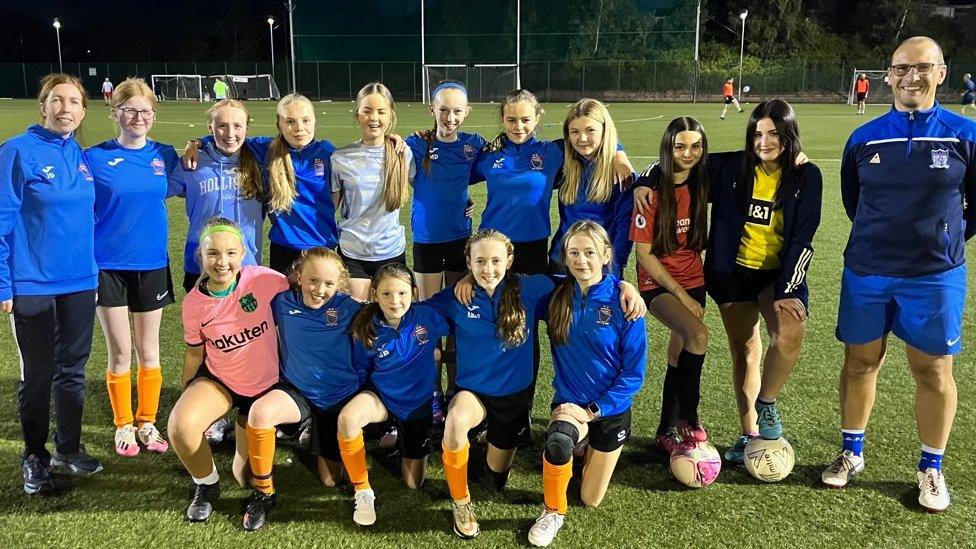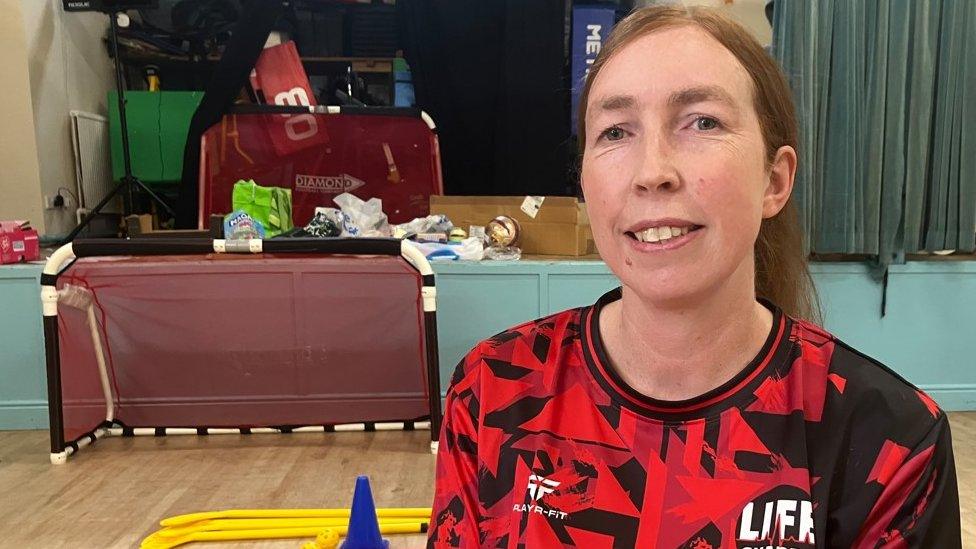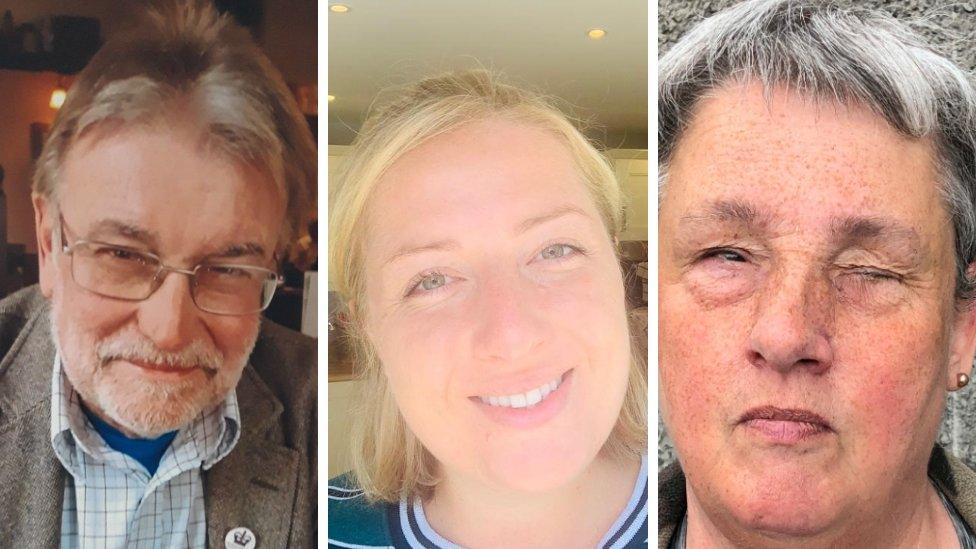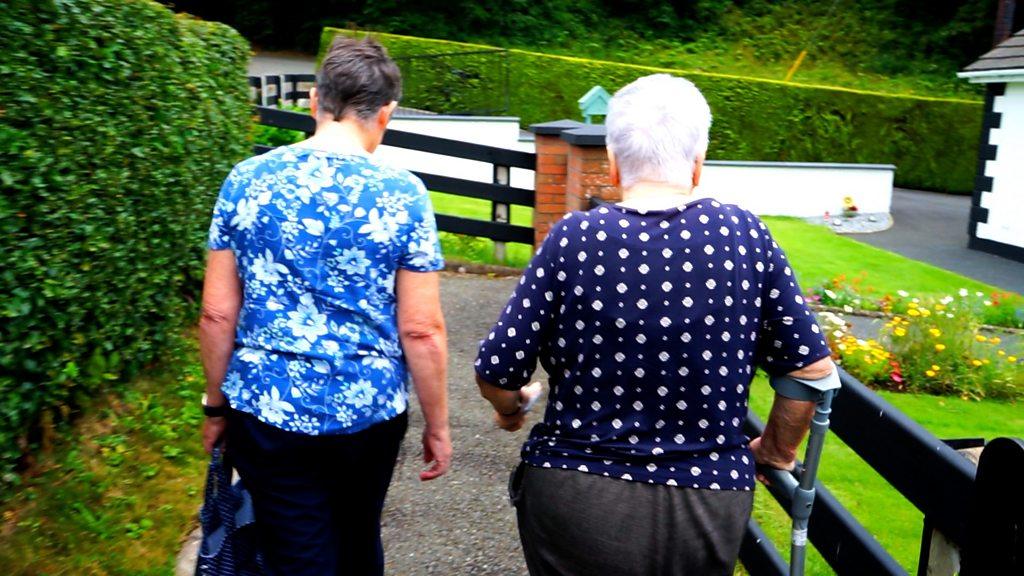Volunteering: 'Concerning' decline after Covid, figures show
- Published

Volunteer Joanne Patterson with Damolly Football Club team in Newry
Like thousands of others, Joanne Patterson is a volunteer.
She says her family would describe her as a serial volunteer.
She volunteers with Damolly Football Club in Newry, at a youth gym, a food bank, as well as church work.
On a cool Wednesday evening, Joanne can be found putting Damolly's young female players through their paces under the floodlights at Abbey Grammar School in the city.
"On nights like tonight when you get soaked, you certainly question it. But volunteers get as much out of it as they put in," she says.
"Like a lot of parents, you probably start by standing on the side of the pitch and then you help a wee bit and then you help a wee bit more, and then in five or six years you can see yourself overseeing everything."
Concerning decline
But latest figures from Nisra's continuous household survey suggest a substantial decline in the numbers volunteering.
"Mostly our volunteer population was at about 28% of our adult population and it sat at that point for years - it never really moved," Denise Hayward of Volunteer Now said.
Volunteer Now is the lead organisation for promoting and supporting volunteering across Northern Ireland.
But last year's Nisra statistics revealed a change.
"[They were] the first real stats after Covid [and] the numbers had gone down to 17%. That could be church-based organisations, sports, arts," Ms Hayward said.
"We were part of a big UK-wide research project looking at this and one of the things that came out of it was that older people, or people with an illness, were told to shield and stay at home. That broke the habit of volunteering and many of them never came back or came back slowly.
"Now that may well change, but overall, we have seen a decline of over 10 percentage points and that is very concerning."
Ms Hayward described the impact on fundraising as huge because "volunteers are a huge driver of fundraising".
But it has also affected the delivery of organisations' services.
"Often volunteers are the ones doing things like befriending schemes. Some needs really rocketed because you saw more isolation, so what you are seeing is demand for services, in many cases, increasing but actually a decreased ability to deliver those services."

Joanne Patterson has been talking about the issues faced by the decline in volunteering
In Newry, Joanne Patterson has seen other reasons for the decline.
"I know ourselves, we have seen it and so have other local groups," she said.
"During lockdown people took up activities that they hadn't previously done, like open-water swimming, walking or running, and they have opted [for] that rather than volunteering to take those couple of hours a week to themselves."
The cost of living is compelling people to take on extra hours at work, she says, or they find that their shift patterns have changed. It's a trend she sees happening at other clubs.
Because of all this, clubs like Damolly has had to be more direct in terms of recruiting volunteers.
"We are like most clubs, especially grassroots football clubs, that you do lose coaches," Ms Patterson added.
"You don't like to and you're obviously looking to recruit and retain.
"We lost three coaches before the summer, so we have three dads who have agreed to come along and help as a group because their three sons are part of that group.
"They have taken on the role of volunteers and already I can see on their faces that they are loving what they are doing."
Related topics
- Published6 June 2020

- Published28 August 2022
